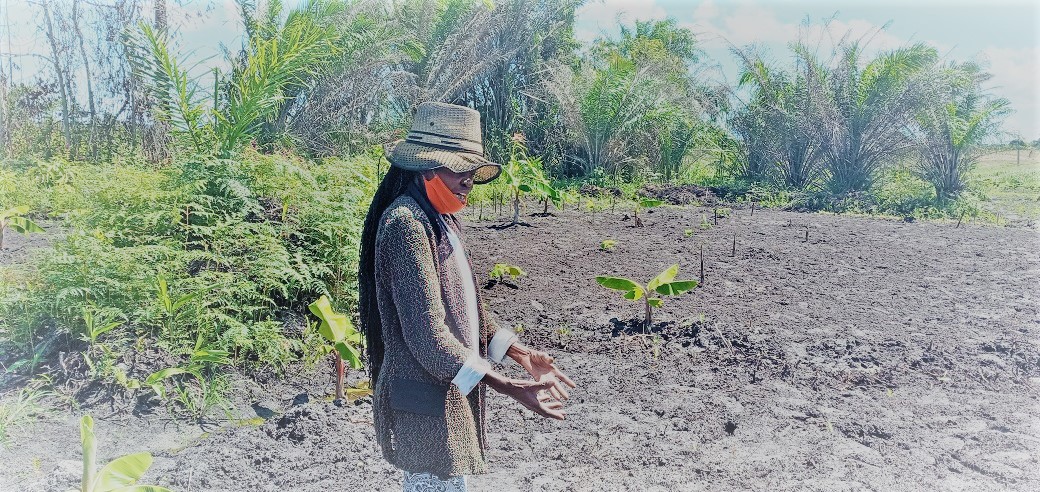Le Fonds vert pour le climat entraîne un changement de paradigme, mais dans la mauvaise direction

By Coraina de la Plaza, Coordinatrice de la campagne sur les forêts et les changements climatiques, Coalition mondiale des forêts/em>
Cette année, la Journée internationale des forêts des Nations Unies associe le besoin de protéger les écosystèmes forestiers et la reprise post-COVID. Le thème choisi est : « La restauration des forêts, une voie vers la reprise et le bien-être ». Derrière ce message important (bien qu’ultimement creux) se cache une réalité bien différente : l’un des mécanismes de financement climatique et forestier les plus importants de l’ONU, le Fonds vert pour le climat (FVC), est capturé par les entreprises et ainsi nuit aux forêts. La dernière réunion du conseil d’administration du FVC s’est conclu vendredi, et représente une opportunité de mettre en lumière le conflit clair entre l’urgence de protéger les forêts et l’influence que les entreprises exercent sur les institutions financières mondiales.
Continuer à lire en anglais…
International Day of Forests should be a reason to celebrate, especially for a coalition such as ours. After all, forests are home to 90% of terrestrial biodiversity and contribute massively to climate stabilization by storing almost 90% of the Earth’s above-ground carbon. Forest ecosystems also support the livelihoods of about one billion people, and are intrinsic to the health, well-being and traditions of forest communities.
However, the fact remains that deforestation rates remain alarmingly high and, as a result, forest degradation still contributes up to 17% of anthropogenic GHG emissions. This is despite the billions in public finance that have been pledged, mobilized, and spent on solving these problems in recent years by a multitude of multilateral mechanisms and schemes, most notably the GCF. There is a common misconception that halting deforestation and reversing forest cover loss requires huge investment in forestry sectors and forest conservation. In fact, a recent study comparing 19 countries that have successfully halted and reversed forest cover loss found no statistical relationship between the amount of investment they received and the level of success they had. Whereas, countries such as Brazil and Indonesia that have received the most investment have still not halted deforestation.
A key reason for the failure of this public finance to translate into halting deforestation and restoring forests is the vicious cycle of corporate influence over policy-making and the support and incentives for the private sector that result. The corporate capture of finance mechanisms has led to an obsession with leveraging private alongside public finance, blending the two together and loaning money to private companies through complex and opaque financial instruments.
For example, the Global Carbon Capture and Storage Institute (GCCS) was recently approved as a GCF observer, which essentially gives some of the world’s most polluting and ecosystem-destroying companies—Shell, Exxon, Drax—the same status as civil society in GCF negotiations, only with far greater resources and lobbying power. Given that Carbon Capture and Storage (CCS) is explicitly mentioned in the GCF’s eligibility criteria, it’s easy to guess what kind of projects will be presented for approval next, with the backing of the GCCS. Are unproven and potentially harmful technofixes what the GCF really means when it claims its goal is to drive a paradigm shift in the world’s response to climate mitigation?
GCCS joins a long list of GCF private-sector observers with a clear conflict of interest—the Macquarie Group, RWE, the World Coal Association—and “accredited entities” (which can partner with the GCF to implement projects and work with governments to come up with funding proposals), such as HSBC, which is Europe’s second largest fossil fuel financier. Discussions are also still ongoing over the accreditation of the Sumitomo Mitsui Banking Corporation (SMBC), the world’s third-biggest lender to coal plant developers, despite over 400 civil society groups having signed a letter in opposition. As one civil society observer said in her intervention on this subject, “this makes a mockery of the mandated objectives of the Fund”.
The corporate capture of the GCF is clearly translating into perverse incentives for forest-harming industries due to the conflicts of interest involved, which is no surprise given how the private sector continuously argues for the need to leverage private finance through public-private partnerships (PPPs). The board meeting last week was plagued once again with such comments. As a result, financing is shifting away from grant-giving and towards lending schemes such as equity agreements, where the GCF protects private capital by underwriting it and de-risks commercial investments that are seen as inherently risky by corporations.
A clear example of this kind of blended finance, where commercial interests are primed over climate mitigation and the well-being of communities, is the Arbaro Fund. Arbaro’s proposal was approved last year and numerous sub-projects are expected to be up for discussion in the near future. The GCF bought a 25 million USD equity stake in Arbaro, enabling it to create 75,000 ha of mainly commercial eucalyptus plantations across seven target countries in Latin America and sub-Saharan Africa. The GCF’s mission is to drive a paradigm shift in the global response to climate change through transformational, low-emissions, and climate-resilient development, but Arbaro’s plantations will achieve none of these.
We do need a paradigm shift in the way that tax-payer’s money is being used by the GCF and others to address climate change, biodiversity loss, deforestation and environmental degradation in general. It must turn its support towards truly gender-responsive, rights-based and community-led initiatives to protect and restore forest ecosystems. But the shift taking place is in the opposite direction to this, where finance is increasingly benefiting a small and already wealthy corporate minority, and further incentivizing their efforts to devour the planet’s already scarce remaining forests. International Day of Forests is an important time to remember this.










